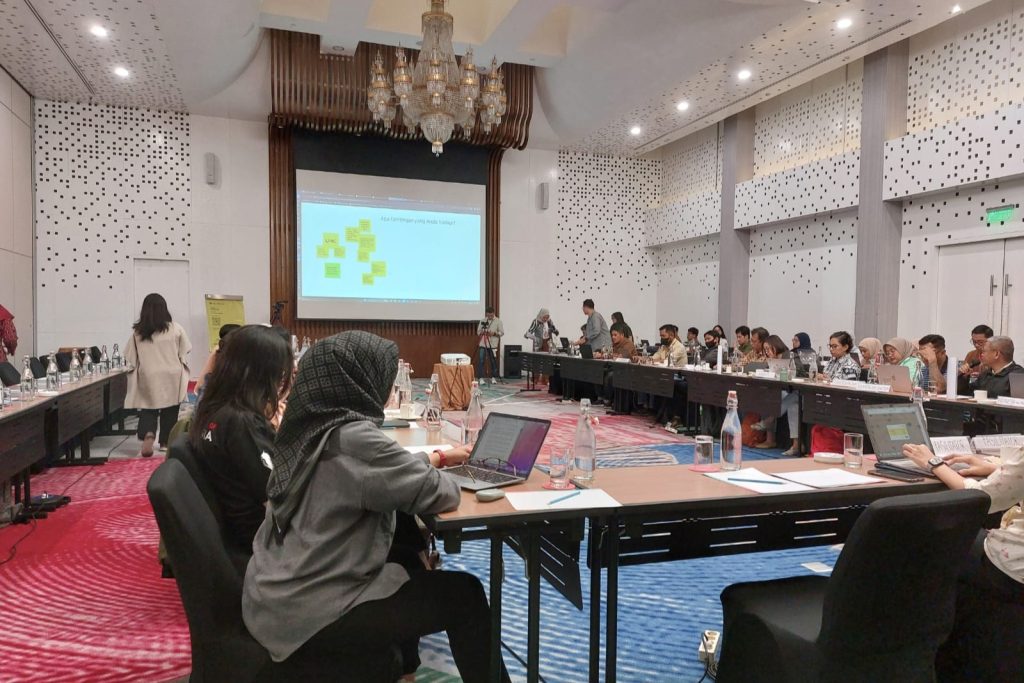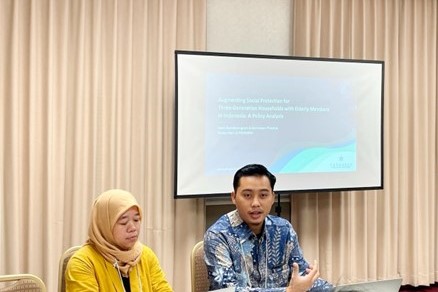Financial Services Authority (OJK) has published a roadmap (The roadmap) 2015-2019 sustainable finance on 5 December 2014. One of the main components in this roadmap is OJK Regulation (POJK) number 51 of 2017 concerning the Implementation of Sustainable Finance.
This regulation requires banks operating in Indonesia to prepare a Sustainable Finance Action Plan and publish an annual Sustainability Report related to environmental, social, and governance (LST) risk management for the financing they disburse.
Five years after implementation The roadmap In this case, financial service institutions (LJK) or banks are known to still disburse credit to a number of companies causing forest and land fires (karhutla) in Indonesia.
Based on the report entitled Overview of Sustainable Financial Reform in Indonesia, which was released jointly by five environmental organizations (11/12/2019), the group of companies involved in the fires throughout 2019 has received at least Rp262 trillion or US$19 billion in debt and guarantees. from banking since 2015.
The study conducted by the Rainforest Action Network (RAN), Transformasi for Justice (TuK) Indonesia, the Riau Forest Rescue Network (jikalahari), the Indonesian Forum for the Environment (Walhi), and Profundo, said that Bank Rakyat Indonesia (BRI), Maybank, and Bank Negara Indonesia (BNI) as the three largest individual fund injecting banks.
BRI poured around US$1,723 million into Provident Agro Group, Rajawali Group, Sampoerna Group, Sinar Mas Group, as well as Sungai Budi Group. Then Maybank as much as US$1,120 million to Sinar Mas Group, Sungai Budi Group, Batu Kawan Group, Genting Group, Harita Group. Royal Golden Eagle Group, and TDM. Meanwhile, BNI is worth US$1,057 million to Rajawali Group, Sinar Mas Group, and Sungai Budi Group.
Just so you know, data from the Ministry of Environment and Forestry (KLHK) revealed that during 2019 to last September, forest and land fires reached 857.756 hectares. It consists of 630.451 hectares of mineral land and 227.340 hectares of peat.
Hundreds and even millions of people are forced to breathe in the toxic air left over by land clearing. According to the National Disaster Management Agency (BNPB), the community was affected by ARI from February to September 2019, around 919.516 people.
Uneasy about the facts above, the Executive Director of TuK Indonesia, Edi Sutrisno, spoke up. He assessed that LJK, including banks, are also responsible for the forest and land fires incident in this country. LJK regulators are also required to monitor the performance of banks more strictly.
"Financial institutions are currently ignoring their obligations, financial regulators such as the OJK must carry out strict supervision and require banks to carry out review financing," said Edi.
He continued, “For companies that have poor and irreparable ESG performance, this needs to be abandoned. Meanwhile, for companies with a positive ESG impact, financing needs to be increased.”
Similarly, Muhammad Kosar from the Independent Forestry Monitoring Network (JPIK) said that the commitment to sustainable finance from banks still needs to be reaffirmed, both standards and supervision from the OJK.
“Banks that provide loans to companies that have not committed to NDPE (No Deforestation, No Peat, and No Exploitation) will only create a bad reputation for the bank itself,” said Kosar in a recent discussion in Jakarta.
The crisis of fire and haze that continues to occur in the country is considered a dramatic illustration of the failure to implement POJK No. 51/2017 and the missed opportunity of the roadmap so that banks can find loopholes that can be exploited to delay and ignore the environmental and social consequences of the decision. their financing.
Made Ali, Coordinator of Jikalahari, emphasized that the case of forest fires in Indonesia will never be resolved as long as there are banks that finance forest burning corporations.
“It's like continuously pouring petrol on a fire. Companies are organized to engage in the use of fire in their concessions. However, banks continue to offer unencumbered loans to fund legal and sustainable operations. This kind of funding discourages companies from changing the way they operate,” he underlined.
Positive Banking Performance, But
The World Wildlife Fund (WWF)'s Sustainable Banking Assessment (Susba) shows that the performance of the Indonesian banking sector has progressed in 2019 from the previous year and is among the leading countries after Singapore, in line with Thailand and Malaysia. Even so, this achievement has not been evenly distributed across all national banks.
In Indonesia, five banks achieved more than 35% of the assessment criteria, namely Bank Mandiri, BRI, BJB, BNI, and Bank Muamalat. From this report, Mandiri showed the best progress by meeting 44% of the criteria and experiencing an increase of 10 criteria in the span of this year.
Unfortunately, however, these banks are still often unable to identify and mitigate ESG risks posed by their customers. The RAN et al report summarizes five cases that reveal a large gap between the disclosure of ESG risks by banks and the risks observed in the operations of the main customers being funded.
Five cases reviewed: 1) Bank Negara Indonesia (BNI) with Korindo Group; 2) Bank Central Asia (BCA) with the Salim Group; 3) Bank Rakyat Indonesia (BRI) with the Sinar Mas Group; 4) Bank Mandiri with Astra Agro Lestari; and 5) Maybank with Triputra.

“Although there is progress where banks recognize the importance of sustainable finance, only a few banks have actually implemented the policies and processes needed to make changes to their financing practices,” Leoni Rahmawati, Indonesia Communications Coordinator for RAN, told Warta Ekonomi in a message. in short.
Response Bank Indonesia himself in his report stated that the majority of national banks do not yet have specific credit and investment policies in business sectors that have a high risk of environmental and social aspects.
According to Association researchers Prakarsa Dwi Rahayu Ningrum, one of the problems that exist in financial business practices is the neglect of Environmental Impact Analysis (Amdal) as a condition for granting credit or financing, especially in large-scale projects.
Dwi said, "Banks do not carry out adequate environmental due diligence to ensure that their business activities do not have a negative impact on the environment."
Wahyu Perdana, Campaign Manager for National Walhi, hopes that banks in Indonesia can contribute to improving forestry and plantation governance.
"As the main source of finance for the forestry and plantation industries, banks should require their clients to comply with all Indonesian laws and regulations, including compliance with regulations related to peat restoration," Wahyu hoped.
He again explained, there is no tolerance for companies that are proven to burn to clear land, convert natural habitats to cause massive greenhouse gas emissions, carry out exploitative work practices, to carry out corrupt land acquisition practices and conflict with local communities.
"Furthermore, as part of the beneficiary, financial institutions should also be responsible for the environmental damage that occurs," he said.
As a regulatory agency, OJK must strengthen supervision, ensure that regulations and guidelines for sustainable finance are adequate by developing a series of new regulations related to risk management standards, and improve coordination to strengthen efforts of other ministries/agencies, especially in reforming the forestry and plantation industries.
OJK is also expected to improve strategic planning by starting the process of preparing a sustainable finance roadmap for the 2020-2029 period by involving stakeholders.
Meanwhile, banks and investors are required to develop and issue new forestry sector lending policies, including ESG risk management systems and develop minimum sector policy standards and processes. Banks also need to improve their compliance by improving the sustainability reports required by the OJK and other disclosure obligations.
"If you want to strengthen law enforcement efforts, regulations must also be supported by financial penalties for banks that continue to finance companies that cause forest and land fires and other operations that endanger the health and welfare of the community," added Edi.
Tag: Financial Services Authority (OJK), Banking, green economy, Forest and land fires
Author: Rosmayanti | Editor: Puri Mei Setyaningrum | Photo: Antara/Hafidz Mubarak A
Sumber: Economic News



